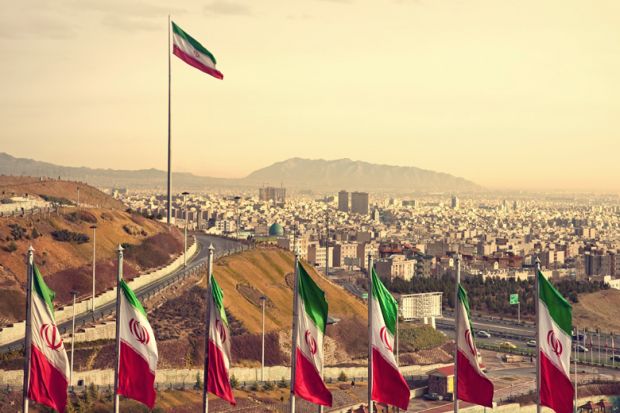Come to our MENA Universities Summit from 2 to 4 February 2016
The lifting of sanctions on Iran is likely to lead to a “gradual opening” of its higher education sector, but collaborations with neighbouring Gulf nations will be limited, a higher education expert has predicted.
Philip Altbach, founding director of the Centre for International Higher Education at Boston College, said the largest impact of the end of sanctions is “likely to be an increase in the number of Iranian students seeking to study in Western countries”.
However, he added: “Continuing conflicts are likely to limit collaboration between universities in Iran and in neighbouring Gulf nations, combined with the fact that it is not clear what each side could offer the other. In short, we should not expect a sea change in regional higher education relations as a result of the ending of sanctions.”
Roham Alvandi, associate professor of international history at the London School of Economics, said Iranian students are not particularly interested in studying in the Arab states of the Persian Gulf.
“The political and social environment there is not very welcoming for Iranians and the quality of the education on offer is rather poor,” he said. “Instead, most Iranians are interested in studying in Australia, Canada, Europe and the US. The problem, however, remains getting visas and the cost of travelling abroad for education, particularly as the value of the Iranian rial remains so low.”
However, he said there may be a “gradual increase” in the number of students and scholars from Western countries going to universities in Iran.
Arshin Adib-Moghaddam, professor in global thought and comparative philosophies and chair of the Centre for Iranian Studies at Soas, University of London, said international collaboration with Iran could be most successful in the postgraduate sector.
In a blog for Times Higher Education he wrote: “Iranians have a long tradition of pursuing further education abroad. More recently, restrictions and censorship in the fields of humanities and the social sciences have made foreign universities more attractive still. The more opportunity there is in those fields of study, the more Iranians are likely to be attracted.”
后记
Print headline: Iran: will the end of sanctions alter the academy?




